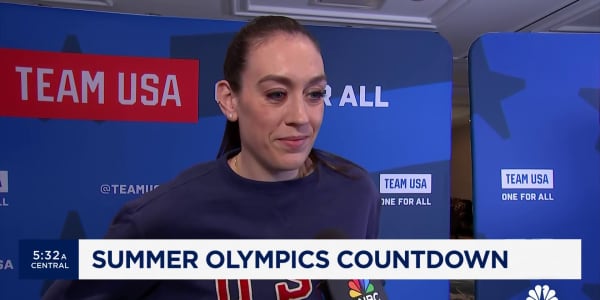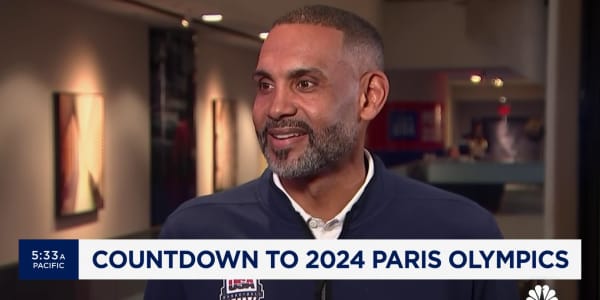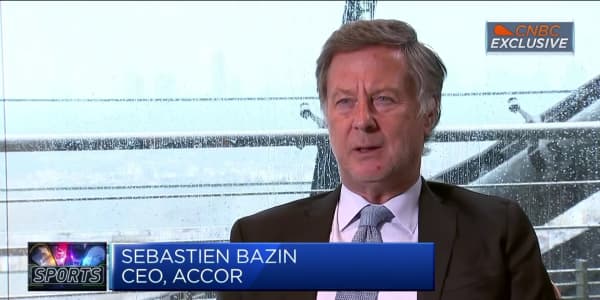Not all teams at the 2016 Olympic games have a home country. But that doesn't mean that they don't have fans.
The refugee Olympic team competed for the first time at this year's Olympics, comprised of 10 individuals participating in a variety of sports, including judo and swimming. Organizations like UNICEF and Visa are using their stories as a marketing opportunity to bring attention to the refugee crisis around the world.
"Rather than trying to focus on engaging the public around boring U.N. summits, we focused on the first-time competing refugee team," said David Ponet, parliamentary and civil society partnerships specialist for UNICEF. "Unlike teams before (that are tied to countries), they don't have a natural fanbase."
UNICEF is using the team to bring awareness to Article 26, the name for the broader initiative to get the public to help with the refugee crisis. The organization is working with a number of groups to engage the public around the refugee crisis, especially for child refugees. The first initiative for the group was to build a fan club around the hashtag #TeamRefugees.
"The overall goal of Article 26 and this specific activation is to get to the point where there is visible and demonstrable support for refugees," Ponet said.
To get awareness for #TeamRefugees, UNICEF worked with agency Purpose and agency UNIT9 director duo "Lefty" to create a 60-second video profiling a refugee athlete, an Iraqi boxer who only goes by Abdullah. The clip was pushed on social to gain online support.
"We just felt incredibly compelled to get involved because the number of refugees around the world is rapidly growing," said Lauren Rodman, former director of strategy and partnerships at Purpose. "We felt there was an opportunity to jump in and humanize the refugee experience, encourage people to use their voice as a call to action."
#TeamRefugees also had key online stars and notable officials like President Barack Obama and Canadian Prime Minister Justin Trudeau to tweet support of the team. They also created #TeamRefugee iitems so people could wear and show their support offline.
Rodman added that she saw the Olympics as an opportunity to show that refugees were strong and resilient, not weak and dependent as the media sometimes portrays them.
"The first step in many ways is to shift the way people think about refugees," she said. "This is the biggest and best opportunity to lay a cultural backdrop for many campaigns coming from the Article 26 movement."
DISCLOSURE: CNBC parent NBCUniversal owns NBC Sports and NBC Olympics. NBC Olympics is the U.S. broadcast rights holder to all Summer and Winter Games through the year 2032.
CORRECTION: #TeamRefugees is the first initiative for Article 26, not Article 22 as the article originally stated. It references the Universal Declaration of Human Rights.





